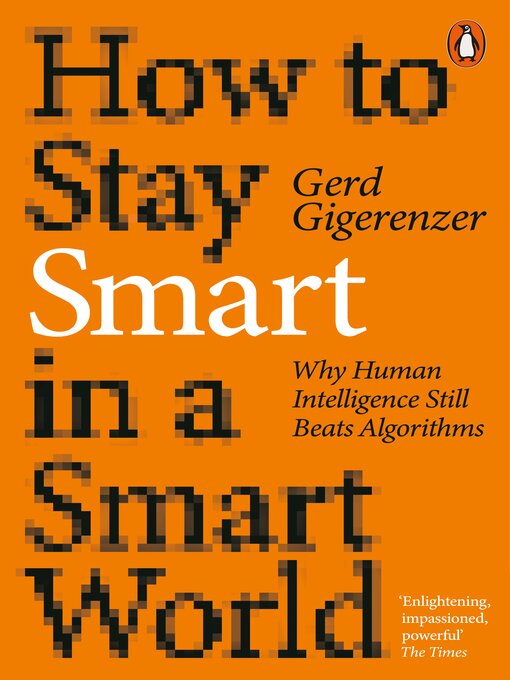'Enlightening, impassioned, powerful' The Times
From dating apps and self-driving cars to facial recognition and the justice system, the increasing presence of AI has been widely championed - but there are limitations and risks too. In this book Gigerenzer shows how humans are often the greatest source of uncertainty and when people are involved, unwavering trust in complex algorithms can become a recipe for disaster. We need, now more than ever, to arm ourselves with knowledge that will help us make better decisions in a digital age.
Filled with practical examples and cutting-edge research, How to Stay Smart in a Smart World examines the growing role of AI at all levels of daily life with refreshing clarity. This book is a life raft in a sea of information and an urgent invitation to actively shape the world in which we want to live.
'Masterful ... an essential read' Gary Klein, author of Sources of Power
'One of the world's most eminent psychologists' Spectator
- Available now: Fiction
- New Fiction for Adults
- BookTok
- General Fiction
- Fantasy
- Poetry
- Historical
- Horror
- Crime & Thrillers
- Romance
- Science Fiction
- See all fiction collections
- Available now: Non-fiction
- New Non-Fiction for Adults
- Biographies
- Cooking & Baking
- Hobby & DIY
- Travel
- Sports & Health
- History
- Society
- Art, Music, Theater
- Science & Technology
- Finance & Economics
- See all non-fiction collections

